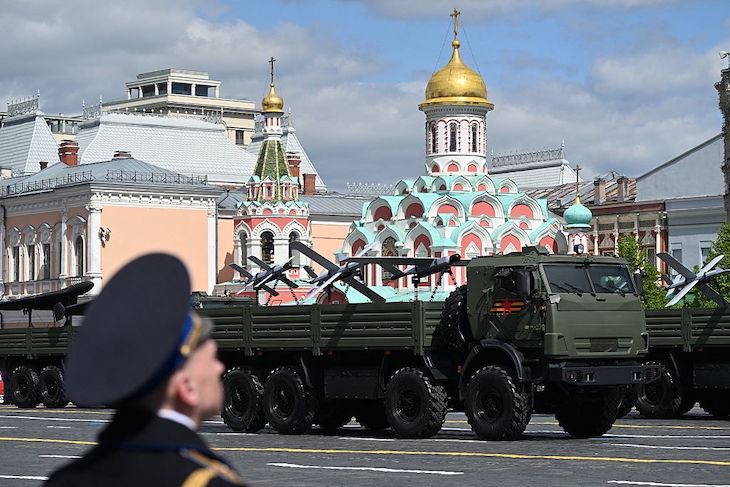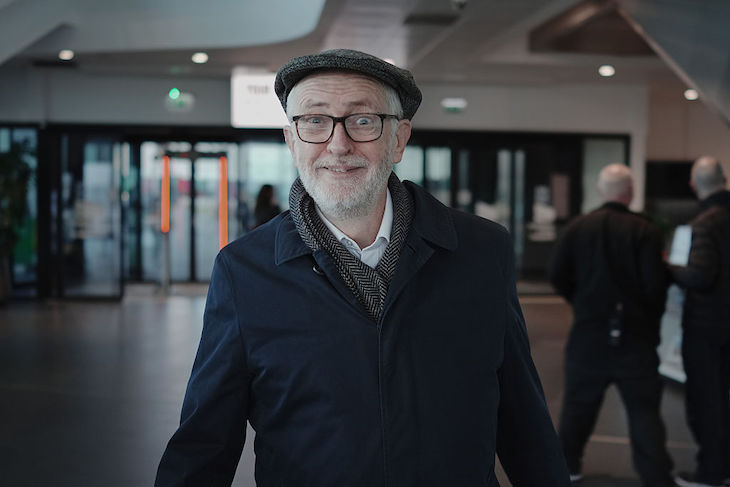Let’s imagine, for a moment, that Vladimir Putin actually respects Trump’s 50-day ultimatum to stop the war in Ukraine. We know what this will spell for millions of Ukrainians. It will mean a chance, among other things, for the ferocious nightly bombings to end and for the country itself to draw breath. But ask yourself this: what happens when over half-a-million Russian troops finally come home?
What happens when over half-a-million Russian troops finally come home?
To make predictions, you first need to know exactly who these soldiers are and where Russia found them. Throughout the war, Putin has avoided, as far as possible, recruiting in St Petersburg and Moscow and has concentrated instead on Russia’s smaller, more far-flung towns and cities in Bashkiria, Tuva, and other Siberian provinces. Typically, these men come from disadvantaged families who, for various reasons, view military service as their only opportunity to improve their circumstances. For these men, life has never held much value to begin with. Their lives aren’t cheap by choice; they’ve simply never known otherwise. Salaries may run as low as £225 a month. Many around them have alcohol problems, and many have been in jail. In these circumstances, you tend not to plan for tomorrow – nobody has ever taught you how to – and life expectancy is low.
Here, patriotism isn’t just a political tool, it’s a lifeline, and being part of a ‘great and powerful country’ is the only way to feel like you matter. Every day, TV and social media bombard you with one message: ‘You have a chance to change your fate.’ You see strong, heroic men in military uniforms. They promise adventure, honour, and money – as a Russia volunteer, you’re reportedly offered around £14,000 as a sign-on bonus. You receive a monthly wage two and a half times the national average, and there are potentially vast payoffs to your relatives should you die in battle. ‘Do something useful for the country and the family,’ your wife shouts. ‘You’re not a man if you don’t go!’
Are you afraid of dying or being crippled? You try not to think about it. You just want to become a hero, to finally earn the respect of your family, to stop being a drunken nobody, and instead, become part of the ‘elite’ that the television keeps talking about.
But we all know how this ends. The public’s perception of these soldiers, even before they return home, is already deeply cynical. Putin’s decision, back in 2022, to allow the late Evgeny Prigozhin, Wagner Group commander, to recruit from among Russia’s prison population has come back to bite the country. While volunteers and conscripts were kept ruthlessly on the battlefield, the criminals, convicted murderers and rapists among them, were allowed to return home.
Getting back, many reverted to their old ways – leaving a trail of rape, arson, and murder. In the two-and-a-half years since the war began, several hundred ‘civilians’ have already fallen victim to them (at least 242 people have died, and another 227 received life-threatening injuries).
Naturally, since these men were the first to come back, they’ve set the tone for how returning soldiers are perceived. There’s now widespread anxiety about what will happen when more ‘heroes’ arrive back in Russia, many with PTSD and unrealistically high expectations of the treatment they’ll get back home. This is often the very opposite of what they’ve been promised. Already, we’re seeing incidents of veterans being denied entry to cafes or shops, or even beaten or mocked. When the trickle becomes a flood, few will be happy to see these men, who will in all likelihood bring aggression, demands, and problems with them.
The locals aren’t the only ones bracing themselves. The authorities, too, will be deeply concerned about the return of these soldiers: they could potentially challenge the existing order and spark social unrest. They may even become opposition figures, speaking with the authority of hard-won experience and bringing about significant shifts in public attitudes. On all these things, the Kremlin will cast the coldest of eyes.
Most probably, the returning soldiers will be reintegrated as gradually as possible. The government will either keep them on contract or resettle them in new territories, giving them jobs on military bases. The goal will be to keep them occupied and ensure they continue to receive their salaries. Even if some return to cities, the majority will likely go back to small towns or villages far from urban centres. Here, it won’t matter much to the Kremlin if they’re unhappy or want something more. Their voices count for little.
For all the state’s promises these soldiers will return as the ‘new elite’, no one has any eagerness to give them power. Bureaucrats fight fiercely for control over budgets and resources – this is how great careers and businesses are built, both in Moscow and the provinces – and they’ll certainly fight for their jobs.
Already, Russian bureaucrats have two strategies to hold onto power. The first is to reinvent themselves as war heroes, briefly joining special units, taking selfies in new uniforms safely away from real combat, and returning home as self-proclaimed ‘veterans’. A number of officials have used a brief, safe stint at the front to launder their reputations.
The second strategy is to appoint real veterans – those who weren’t previously officials – to symbolic positions. Perhaps they’ll become deputy mayors responsible for the social protection of other war veterans. They might be appointed to staff positions in the presidential administration, or hold some other symbolic, non-executive, or non-influential position to showcase social mobility for war veterans. They can meet, drink vodka, complain about their experiences, sing songs, and reminisce about the war. But these roles won’t offer any real power or access to resources. It’s all just for show, pure propaganda. In public, they will be fêted; in private, live in abject poverty.
But what of the severely wounded? Won’t their sacrifice earn them better treatment? If historical precedents after World War II are anything to go by, quite the reverse. Back then, veterans who returned visibly disabled were seen as tarnishing the image of socialism and were smartly packed off to care homes, hospice-like places in former monasteries where they lived out their days without limbs, eyes, or proper attention. A similar fate, I suspect, awaits those coming back from this war, especially the badly disfigured. They’re a living reminder of the catastrophic price Russia has paid for Putin’s imperial ambitions, a price the Kremlin desperately wants everyone to forget. At least, until they’re ready to start another war…







Comments